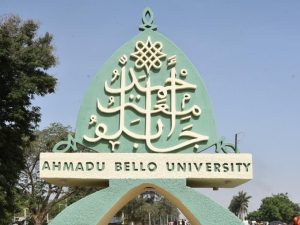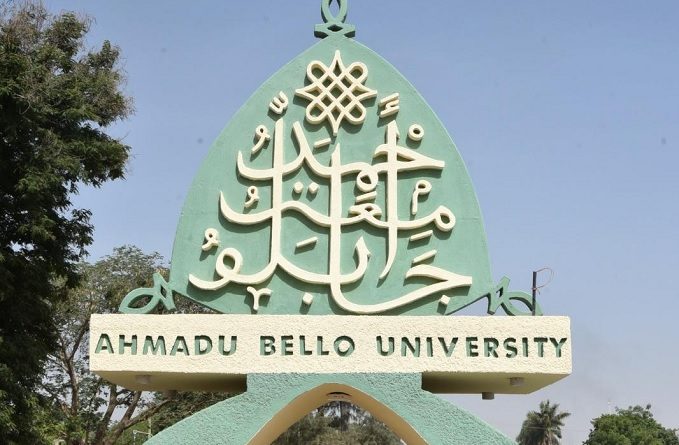‘Diversity At Scale Is ABU’s Unique Selling Point’: Readers React On Nigeria At 65 And ABU At 63


The Oasis Reporters
November 19, 2025

Prof MK Othman
My two-piece article on nominations for national awards for a few individuals who work tirelessly every day to serve humanity drew a strong response from my large readership.
The article was written as a tribute to Nigeria at 65. Previously, I composed another tribute to my alma mater, the great ABU, at 63. I am combining readers’ comments on these tributes to broaden the discussion and enhance understanding. Happy reading.
Dear Prof. Othman, your nomination of Dr. Salamatu Garba, the Founder of WOFAN, for a national award is commendable, as she is truly an unsung hero. The impact of her programs on the lives of the vulnerable in society can’t be explained by mere words. Dr. Salamatu Garba has done so much for people from all walks of life, thereby improving their livelihoods and helping them to stand on their feet.
Engr Benedict Andrew
Prof. Othman, well done for a fantastic piece on well-deserving people. Despite your additional responsibilities, you are still doing what you enjoy—more grease to your elbow. May the nominated people be awarded with national awards.
Dr. Muhammad Usman
I am always happy when I see people I respect and love being recognized. Dr Hassan GIMBA, my Editor, remains one of the most humble, forward-thinking men in the profession. Contributing to humanity and national development quietly…He is so humble. Except you were told. There was no line between him and the Reporters as he treated us all with respect. I absolutely second your nomination and hope Nigeria recognizes his efforts.
Ruth Tene
Thank you for the nomination, my dear Professor Mohammed Khalid Othman. Bahaushe yace “zo mu ci tuwo yafi tuwon daɗi”. Therefore, this recognition from an eminent personality like you has made my day. Well done, Prof.
Thanks.
Dr. Hassan Gimba
A writer is always a writer, even when the workload is heavy in his hands. Thank you for the fantastic write-up.
Alhaji Abdurraqib Nura
Well done, sir, more knowledge and wisdom to excel in your new appointment, my boss.
Emmanuel Abiola Ogunrinde
Prof, thank you for the nominations. In Kano, there is one dedicated person, Alhaji Ali Muhammed Yakasai (Popularly known as KALLAMU)—a former Registrar of Kano University of Science and Technology, Wudil. I urge the concerned to look into this matter. Many people deserve national recognition and honor, including the writer, Prof. Mohammed Khalid Othman. Thanks for bringing this topic to light and doing it justice.
Mudassir Aliyu
This is an excellent piece with valuable information for recognizing important people who have been serving humanity for the betterment of society.
Yunusa Yakubu
Re: ABU At 63 Zaria- Forward Ever
It has been almost three decades since I walked out of Ahmadu Bello University, Zaria, carrying not just a degree but a worldview. Yet whenever I hear the name ABU, a surge of nostalgia rises as fresh as the harmattan breeze that used to sweep through Samaru.
ABU is not simply a university. It is an institution, a brand, a federation, and a nation unto itself. It is the place where Nigeria comes together to study, live, argue, celebrate, and dream. ABU is not federal in name only. It is federal in its blood, its soul, and its breath.
In my time, we used to say, “There is no local government in Nigeria that does not have at least one student in ABU.” That was not an exaggeration. It was the truth. From Sokoto to Bayelsa, from Borno to Ekiti, from Calabar to Kano, every lecture hall, hostel corridor, and cafeteria line reflected Nigeria in miniature.
It is the one university where you cannot easily define where Nigeria ends and begins. That is ABU’s most significant brand promise: diversity at scale. ABU does not just admit students. It admits Nigeria itself. Yes, ABU gave us degrees. It gave us lectures in vast auditoriums, tutorials in crowded classrooms, and examinations that stretched our minds. But the true curriculum of ABU extended beyond the classroom.
It was in the people.
Living in ABU was like attending the United Nations of Nigeria. You learned politics not only from textbooks but also from dining-hall debates with fiery comrades from Enugu.
You learned economics not just from lectures but from bargaining with a roommate from Kano who could haggle over anything.
You learned sociology not only from your lecturers but also from observing how a classmate from Ibadan greeted elders differently from one from Bauchi.
At ABU, you could not remain narrow-minded. You could not afford to think like a local champion. The school itself forced you to grow. It pushed you to adapt. It required you to listen, to understand, and to empathize.
It was at ABU that I discovered there is no single way to eat rice. Some call it jollof, some call it tuwo, some call it masa. In the end, it is rice.
It was in ABU that I learned there is no single way to dream, no single way to pray, no single way to greet, and no single way to live. That was the real education. That was the ABU brand of education.
Looking back almost thirty years later, ABU shaped my thinking, my worldview, my relationships, my orientation, and my sense of Nigerian identity.
Because of ABU, I can sit comfortably in a room in Maiduguri and feel at home. Because of ABU, I can share a meal in Port Harcourt without feeling like a stranger. Because of ABU, I have friends in every corner of this country, friends I can call brothers and sisters.
ABU made me Nigerian, not in the shallow sense of holding a green passport, but in the deeper sense of belonging everywhere.
Nigerian in the sense of seeing humanity first before tribe or tongue.
Nigerian in the sense of knowing that diversity is not a weakness but a strength.
When I look at myself today, I know that my confidence, my open-mindedness, my ability to relate with people from every culture, and my instinct for unity all have one root: ABU Zaria. Every great brand has a unique selling point. For some universities, it is age. For others, it is history. For still others, it is academic prestige. For ABU, it has always been one thing: scale and diversity.
ABU is not simply a school. It is a federation. It is not just a campus. It is a carnival. It is not merely an institution. It is a nation.
Other first-generation universities may boast of being “the first and the best” or “the first indigenous university.” They may showcase their history, architecture, or regional pride. ABU’s pride is Nigeria itself. ABU is where Nigeria meets itself.
ABU is where the nation’s future leaders first learn to live together. ABU is where young men and women from the 774 local governments arrive as strangers and leave as compatriots.
That is why ABU alums stand out. They carry a quiet confidence, born not only of education but also of exposure. We were not only trained in classrooms. We were taught in Nigeria itself.
It has been nearly thirty years since I left those gates. Time has passed, but my gratitude has not. I am proud that I attended ABU Zaria. I am pleased that I lived through its diversity. I am proud to have been part of its carnival of cultures. I am glad that I carry its lessons everywhere I go.
The annual SRC Cultural Carnival may last for a weekend. The real carnival of ABU is lived every day. It is lived in the hostels, in the lecture halls, in the cafeterias, and in the friendships. ABU is not just about what you study. It is about who you become. And three decades on, I can testify that I became more than a graduate. I became a Nigerian in the truest sense. So when people ask me about ABU, I smile. I tell them ABU is more than a school. ABU is a brand. ABU is a home. ABU is in Nigeria. Once you have been to ABU, you have been to Nigeria.
NB: This was forwarded to me by a reader of my column and a friend, Mr. Amachie Benjami from Lagos, and I decided to share it as it reflects my opinion on ABU Zaria.














